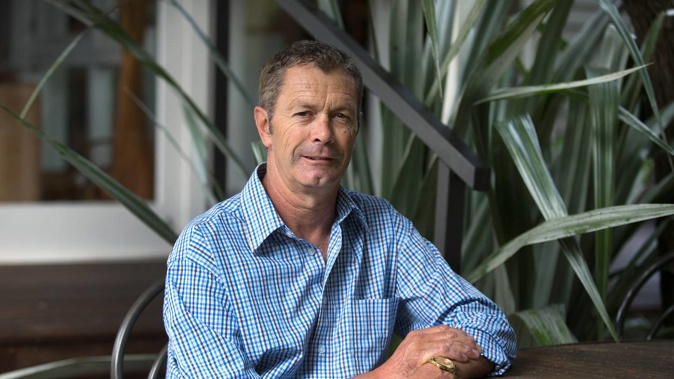

One of the country’s top horse trainers has been accused of racism after he told an Indian stablehand: “It wouldn’t matter if an Indian died, there would still be a billion left”.
Stephen McKee denied he was racist and admitted making the comment, but said it was in the context of “group banter”, with a number of other employees present.
However, that’s not how his former employee Itwinger Singh saw it, and the stablehand has taken his former boss to the Human Rights Review Tribunal over the statement and other remarks McKee is alleged to have made.
Part of Singh’s claim is that McKee would mock his Indian accent and told staff to speak “proper English” at work, verbally abusing them when they spoke in their native language.
McKee admitted asking staff to speak English but said it was in the context of them dealing with dangerous and often unpredictable horses and everyone speaking the same language was necessary for health and safety.
He denied mocking the man’s accent and making other disparaging comments about Indian people to Singh.
/cloudfront-ap-southeast-2.images.arcpublishing.com/nzme/Y2DRJGUC5VD4PH6XTU5JOGCWVM.jpg)
Former top horse racing trainer Stephen McKee is accused of directing racist language towards employees. Photo / Trish Dunell
“Since my early days of employment, he always made passing comments about my accent or Indians in general - but I used to ignore it... it reflected more on his upbringing and his values,” Singh told the tribunal at a hearing in Auckland today.
“This behaviour became more frequent and turned abusive in my last few years of employment with the introduction of other Indian staff.”
Singh told the tribunal racist remarks or mockery of his accent would occur on average once a month during almost 10 years of employment with McKee.
On one occasion in 2019, Singh alleged McKee told him and other staff who were conversing in Hindi: “Speak proper English, I can’t understand you.”
“On other occasions, he would repeat my words in an over-exaggerated Indian accent,” Singh said.
Singh claimed after telling McKee of an incident with a particularly difficult horse, his boss responded: “It wouldn’t matter if an Indian died, there would still be a billion left.”
“This comment belittled me and showed how little Indian lives meant to him,” Singh told the tribunal.
“It just felt like the lives of the Indians don’t matter to him... like they’re dispensable.”
Singh also claimed little trust was placed in Indian employees and said McKee always made sure there was a non-Indian staff member rostered on with migrant workers. McKee denied this.
Singh has also taken other issues he had with his employment under McKee to the Employment Relations Authority, which heard his case in March but is yet to issue a decision.
Tribunal deputy chairwoman Jane Foster said Singh couldn’t take “two bites of the cherry” and have aspects of his employment dispute essentially re-litigated at the tribunal when the authority had already dealt with them.
The tribunal restricted parts of Singh’s evidence that had already been heard by the authority.
It’s not the first time McKee has been through the legal system in recent years, after being sentenced and ordered to pay more than $370,000 to an aspiring jockey who suffered a horrific accident while working at his property that left her a tetraplegic.
McKee successfully appealed that sentence and managed to reduce the compensation he had to pay Sophia Malthus by $100,000.
McKee announced he was stepping down from the horse racing industry in 2021.
/cloudfront-ap-southeast-2.images.arcpublishing.com/nzme/II7NHVCUC73G3GCO2JG5KZ7UXQ.jpg)
Aspiring jockey Sophia Malthus was paralysed when she was thrown from a horse at one of Stephen McKee's stables.
“I don’t have any issues with Indians, their culture nor their work ethic,” McKee told the tribunal.
“I do not consider Indian life to be of lower value.”
McKee admitted asking employees to speak English when dealing with difficult horses for safety and said he made other comments in jest.
“We were joking around and making banter. I certainly have not been abusive in speaking to my Indian employees as Mr Singh alleges.”
He said he had always gone above and beyond to make sure his employees felt welcome, included and cared for.
McKee said he gave one employee every Friday off so they could go to their local mosque.
Part of Singh’s claim to the Employment Relations Authority was that he was unjustifiably made redundant in 2020.
McKee said that after his father became ill in 2017, he took control of most of the business and downscaled it.
As part of that downscaling, part-time employees such as Singh were made redundant in favour of other fulltime employees.
McKee’s lawyer, Paul Wicks KC, said despite his claims of racial harassment, Singh fought to remain employed by McKee after being made redundant.
Singh lodged his complaint with the Human Rights Commission in early 2020.
Singh sent an email to McKee in late 2019 raising his concern about the language his boss was using, as well as a number of other employment issues.
Wicks said his client was in Australia at the time but went to lengths to schedule a time that would suit Singh to discuss the issues he’d raised.
He claimed Singh was aggressive in response and unco-operative about negotiating a time for them both to meet and address his concerns.
Singh was able to question McKee directly and said there was a power imbalance between a boss and an employee and that it wasn’t appropriate to make racial comments at all.
“Can you remember me making any comments about your race?” Singh asked McKee.
Singh said the other Indian employees spoke very limited English and couldn’t possibly have been aware of what McKee was saying to them.
The tribunal reserved its decision.
Jeremy Wilkinson is an Open Justice reporter based in Manawatū covering courts and justice issues with an interest in tribunals. He has been a journalist for nearly a decade and has worked for NZME since 2022.

Take your Radio, Podcasts and Music with you









